Learning Thai: Taiwan’s Fancy
Chen Chun-fang / photos Jimmy Lin / tr. by Geoff Hegarty and Sophia Chen
September 2016

According to statistics from the ROC Tourism Bureau, the number of people from Taiwan visiting Thailand has run at an annual average of about 380,000 since 2004, reaching a high of 600,000 in 2015. As an upshot, Thai restaurants have become a regular part of the scene on Taipei’s bustling streets and in food courts. Thai movies have been growing in popularity, and all sorts of diverse trends are revealing Taiwan’s fondness for Thai culture. All this has contributed to a vogue for learning the Thai language.
There are other triggers too. The number of migrant workers and new immigrants from Southeast Asia is increasing, and Taiwanese companies are investing increasingly in the region. In response, universities including National Taiwan University (NTU), National Taiwan Normal University, National Chengchi University (NCCU), and National Chi Nan University have launched courses or units related to the study of Southeast-Asian languages.
It’s not only universities; private institutions are also teaching Southeast-Asian languages. These include the Center for Public and Business Administration Education at NCCU, the Office of Continuing Education at Chung Yuan Christian University, the Taiwan External Trade Development Council, Jiudi School, the SEAMi bookstore, and Mudita Thai Center (one of the earliest Thai language institutions in Taiwan).
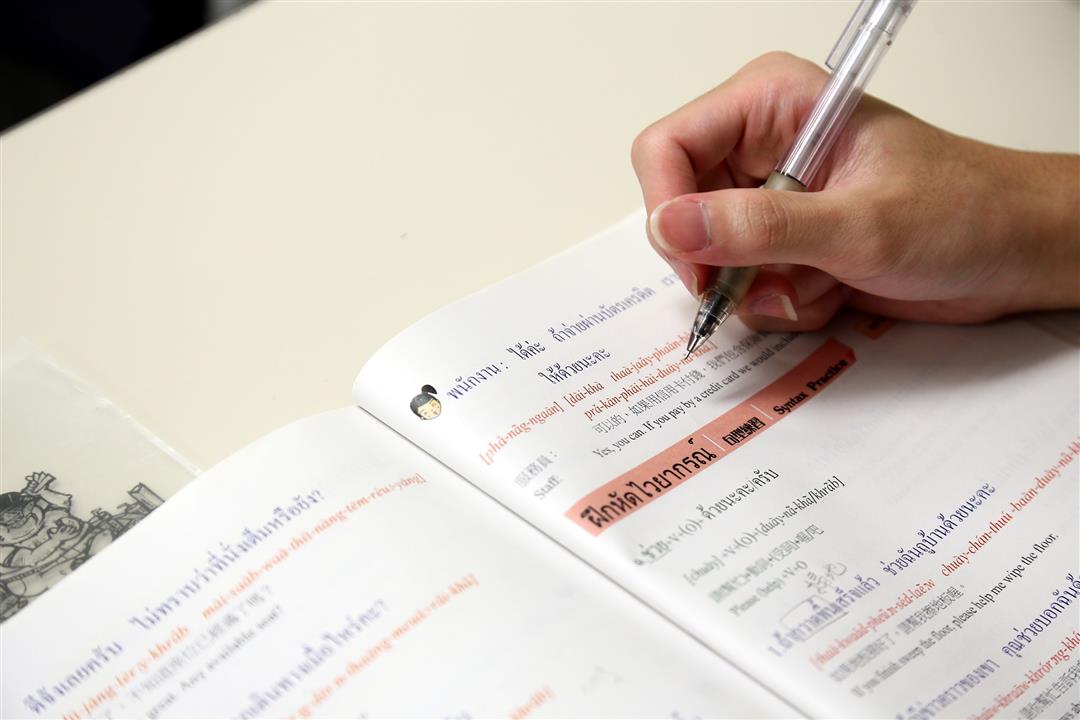
When learning the Thai script, students need to study patiently before they can appreciate its great beauty.
Happy learning Thai
On a lazy summer afternoon in a classroom at Mudita Thai Center, Helen Cheng is attracting attention with her dynamic personality and body language. Born in Taiwan, Cheng is a devout Buddhist and the founder of Mudita. In her quest to understand the Buddhist Dharma preached by Thai monks, she decided to learn Thai, beginning her study with cassettes at home. Then in 1997 Cheng left her job at National Taiwan University Hospital and traveled to Thailand to study Buddhism and improve her Thai at a language school.
Cheng’s proficiency in Thai improved dramatically during her time in Thailand. In 2005, when she established Mudita Thai Center, the language was not particularly popular in Taiwan. She recalls her first class: “I really didn’t expect anyone to be interested in learning Thai, but eight students turned up.” In the ensuing decade, Cheng has taught thousands of students from all walks of life, including businesspeople, teachers and journalists. Most are not academic students: some want to learn Thai because they are going to be working in Thailand, while others simply want to communicate with Thai friends. But the majority of people are just planning to visit Thailand and enjoy its culture.
The Thai script includes 44 consonant letters and some 32 vowel forms, and the language has its own characters for writing numbers, although Arabic numerals are also used. The grammar is similar to Chinese, but there is little in the way of punctuation, and for this reason reading and writing are much more difficult to master than speaking. Cheng encourages beginners who have been to Thailand to share their travel experiences as a way of practicing conversation, which will usually boost students’ confidence in their speaking skills. As classes are usually a lot of fun, lessons are often a way for students to relieve stress after work as well.
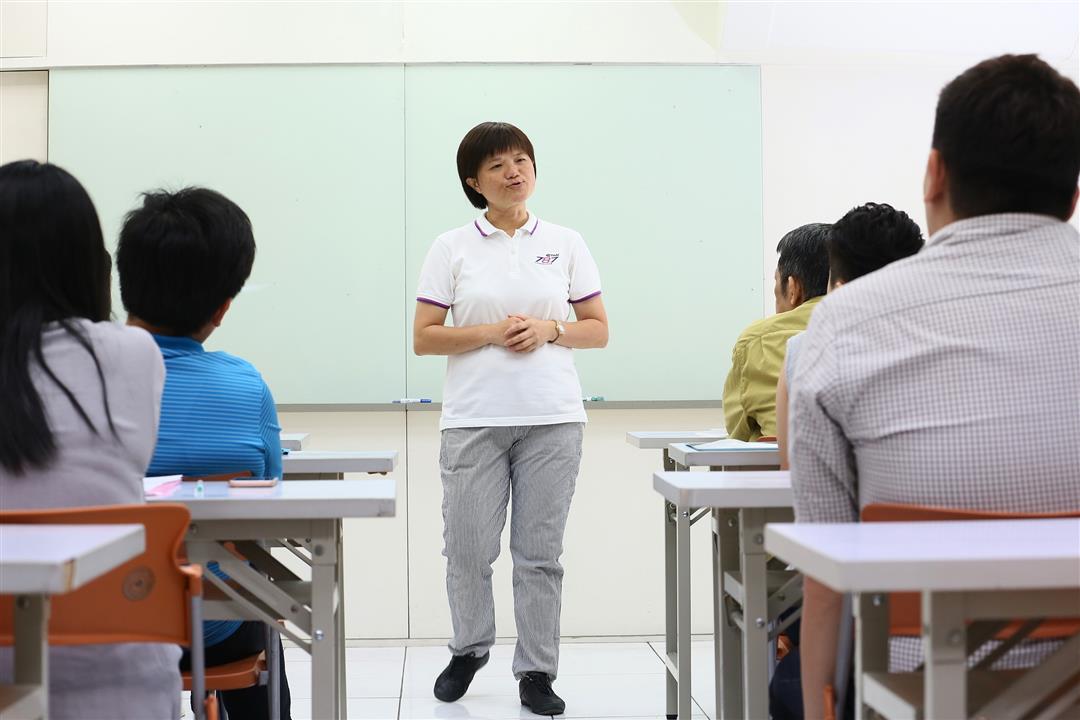
Helen Cheng has been teaching the Thai language in Taiwan for over a decade. She has an effervescent style much loved by her students.
On campus
Thai is also a popular language in Taiwan’s universities. Liu Kang-ding, a PhD student in NTU’s Department of Anthropology, is currently teaching Thai language in the Arts Faculty at NTU, and at NCCU’s Foreign Language Center. Liu was born and raised in Thailand, then spent a year in mainland China studying Mandarin. Returning to Thailand, he became a Thai‡Mandarin translator, and in order to enhance his proficiency in Mandarin, he came to Taiwan in 2007 to do further study.
After completing postgraduate studies at NTU’s Graduate Institute of Journalism, Liu found a job with an advertising agency. Then, just by chance, he started teaching Thai at NCCU’s Foreign Language Center. “I never imagined that one day I would be teaching Thai in Taiwan. But it feels cool,” he says. Despite teaching only two hours a week, once he tasted the classroom, Liu quit his advertising job to make the most of the opportunity and develop his teaching skills. Having the critical edge of being a native speaker of Thai (and a fluent Mandarin speaker to boot), Liu’s teaching career took off and led him into work at NTU, Chung Yuan Christian University, Taiwan Police College, the China Youth Corps, and the Taiwan External Trade Development Council.
The majority of Liu’s learners are local college students, with some from Malaysia and Myanmar. As Southeast-Asian issues have gained momentum in Taiwan over the past few years, student numbers have increased significantly. NTU, for example, has opened an additional beginner’s course in Thai to meet the demand.
There are many reasons for learning Thai. Some have fallen in love with Thai culture, or are planning to visit the nation. Others may be planning to volunteer in northern Thailand, or are preparing for a career in Southeast Asia. “Learning Thai isn’t as easy as you might imagine. I always remind my students at the beginning of the course to think twice about what they’re undertaking.” Liu doesn’t want students in class just because they’re following the trend.
With increasing numbers of people keen to learn Thai, the Taiwan Thailand Culture and Language Promotion Association was established last year. The organization is committed to promoting Thai affairs in Taiwan, setting up language courses and running Thai language certification tests. They want to encourage the learning of Thai throughout Taiwan.
Thailand’s rich and profound culture attracts huge numbers of tourists, and also stimulates people’s interest in learning the language. Having some knowledge of a country’s language is an important first step towards understanding its culture. As the popularity of Thai culture endures and increases, Thai language study will continue to build bridges of friendship between Taiwan and Thailand.
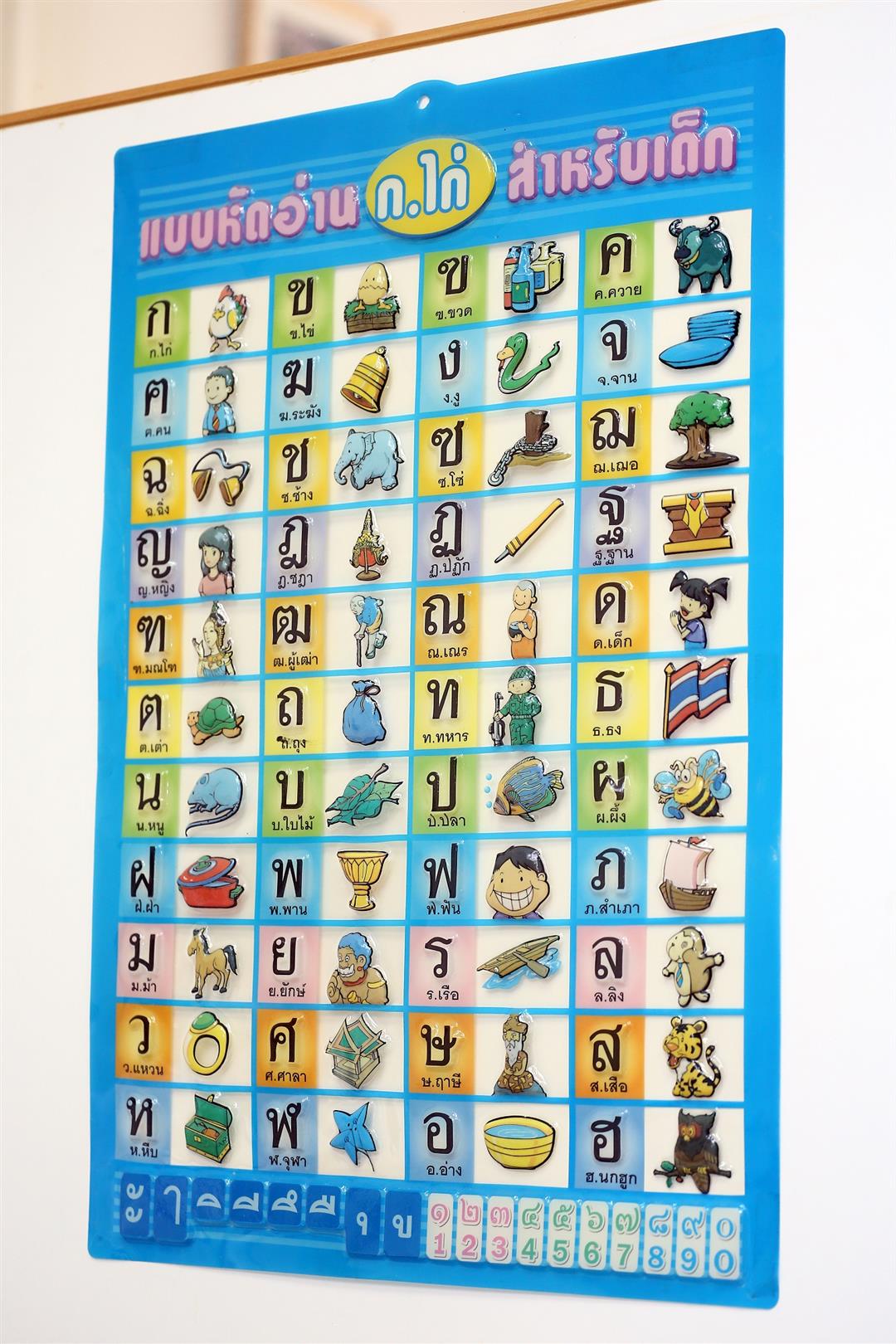
This colorful poster assists students in their study of Thai.
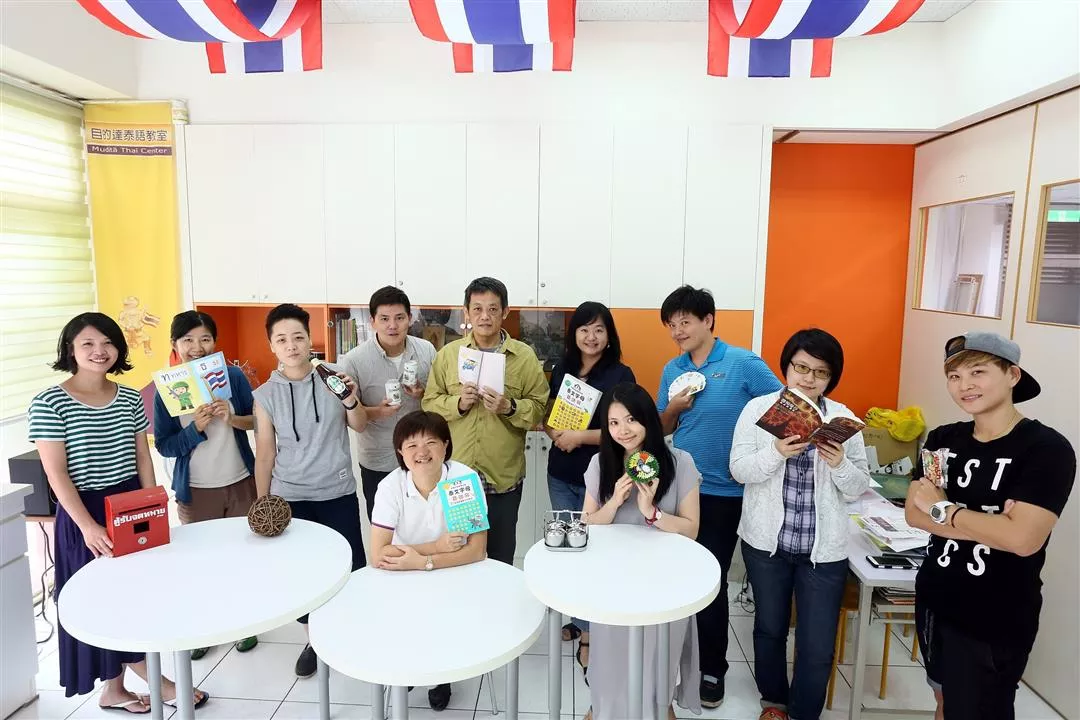
With such a cheerful learning environment, classes at Mudita Thai Center are full of fun and the flavor of Thailand.
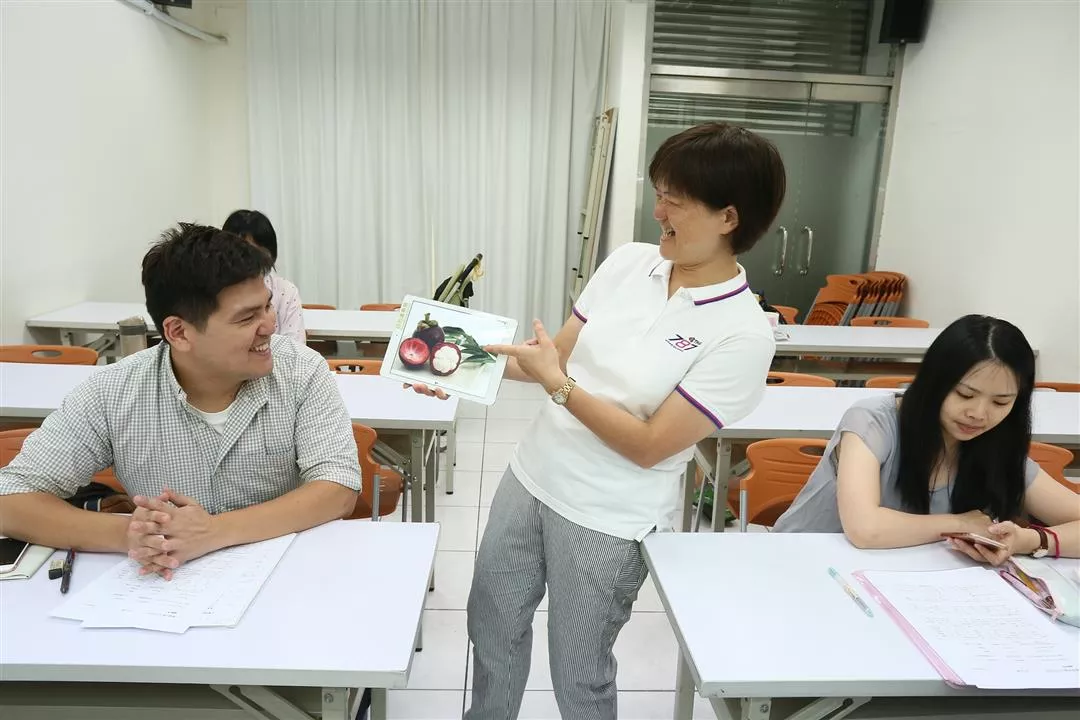
Helen Cheng encourages students to share real-life experiences by speaking Thai in class, communicating authentic ideas and enhancing their confidence.
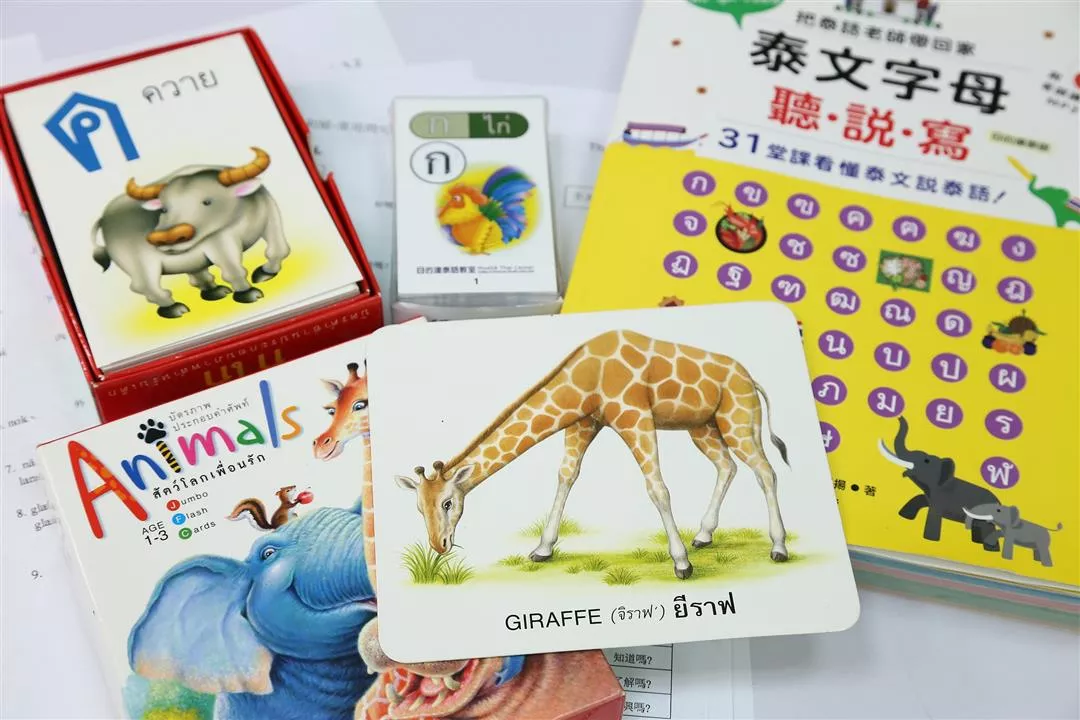
Support materials make learning Thai that much more vivid and interesting.
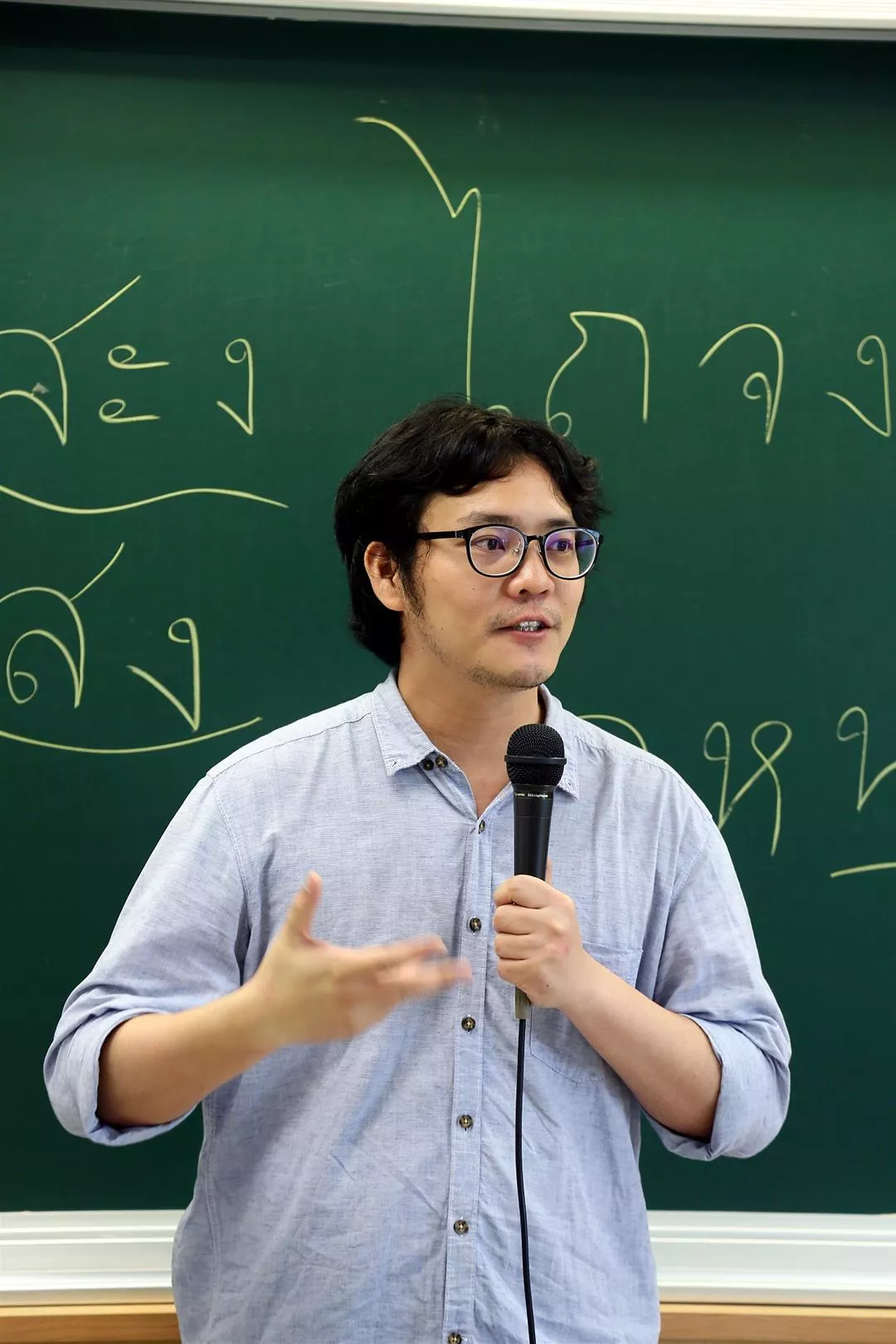
Highly proficient in Mandarin, Liu Kang-ding is actually a native speaker of Thai who has found his vocation teaching the Thai language in Taiwan.
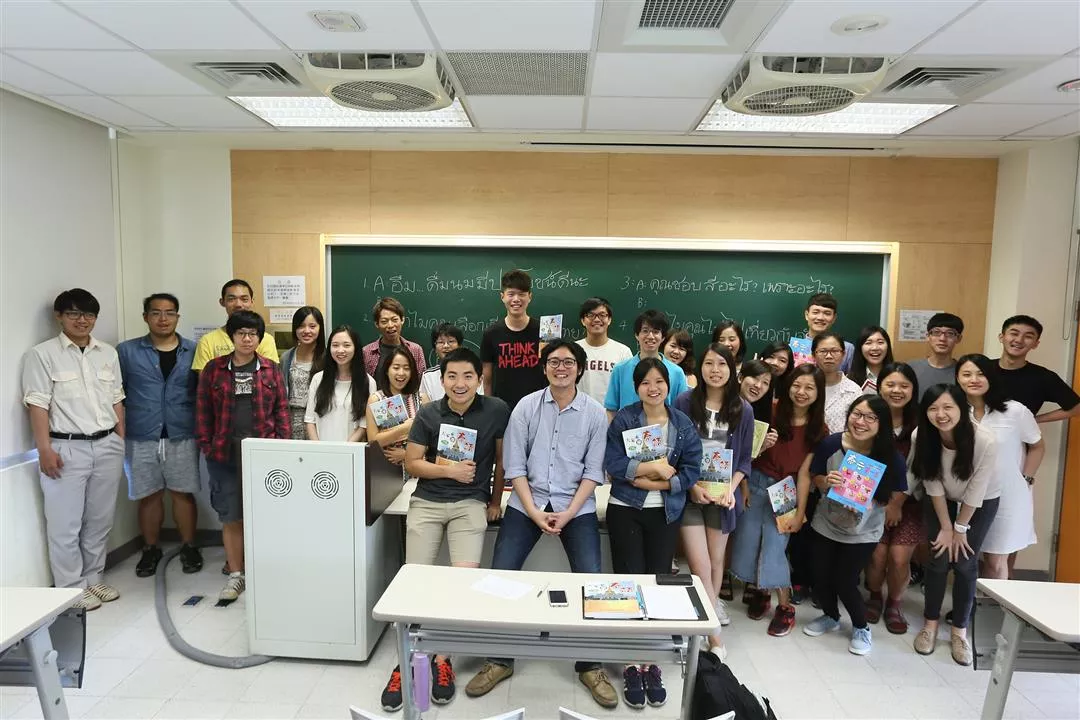
A wave of Thai language learning is sweeping colleges in Taiwan. A typical Thai class will have students from different majors coming together to enjoy the charm of Thai culture.
@List.jpg?w=522&h=410&mode=crop&format=webp&quality=80)
@List.jpg?w=522&h=410&mode=crop&format=webp&quality=80)

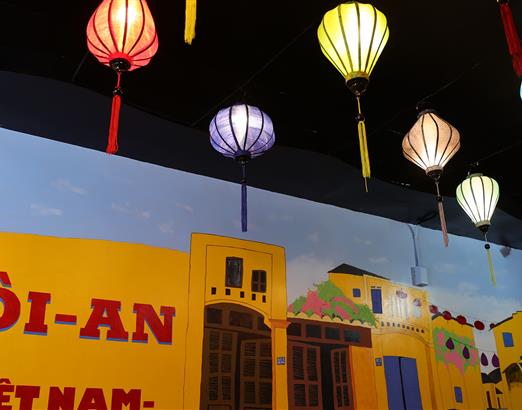
@List.jpg?w=522&h=410&mode=crop&format=webp&quality=80)


